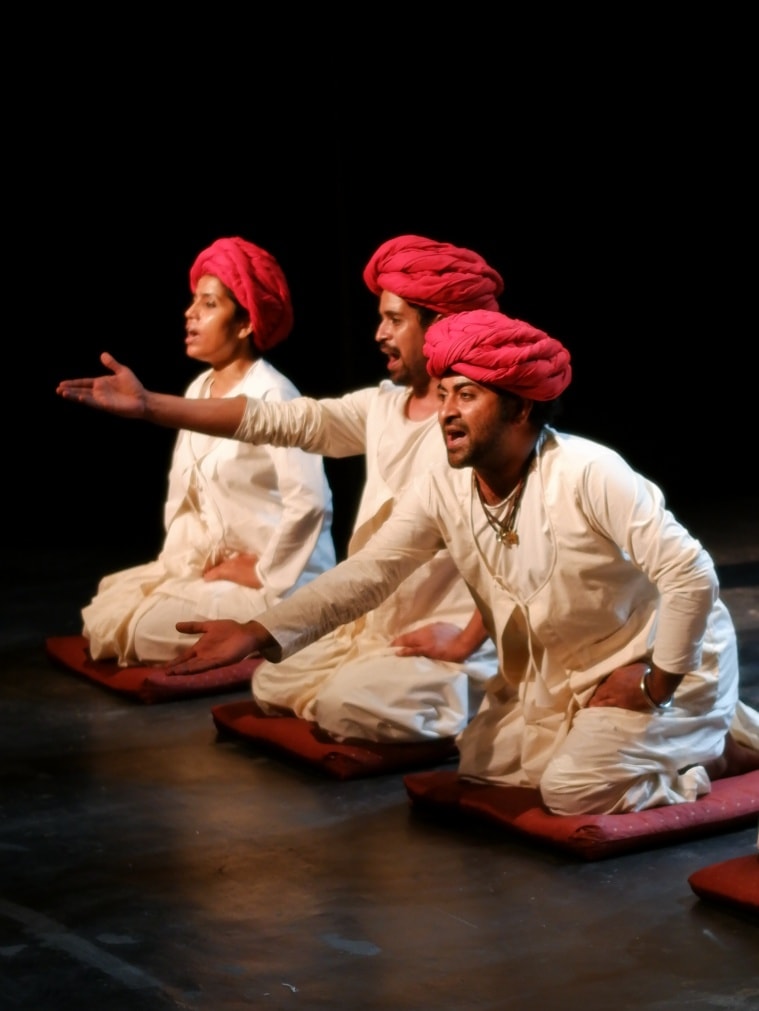A lockdown has been announced and Amar is one among a faceless crowd who has started from Mumbai and is walking to his village in Uttar Pradesh on foot — a distance of more than 1,300 km — with a hope to meet his children and his wife.

These are two stories by Chirag Kandelawal and Arvind Charan and form a part of a play titled ‘Hunkaro’ being staged for the first time in Pune.
In Marwari, with dialects of Hindi and Punjabi, the play will be held at The Box on March 19, 5 pm. Amid the second anniversary of the pandemic, Hunkaro focuses on the critical factor that everybody was hooked to as the disease raged — hope.
The foundational story of Hunkaro is eminent writer Vijaydan Dehta’s Aasha Amar Dhan, which revolves around two children, who have been abandoned in an empty house by their father and their stepmother. All that the siblings have to sustain themselves is a little food and a promise.
“What is deeper, ocean or hope? What is more powerful, the wind or hope? What burns brighter, the sun or hope?” asks director of Hunkaro, Mohit Takalkar, quoting Dehta’s closing remarks in the story.
 The title of the play is drawn from the realisation that the lockdowns had reduced our attention spans and ability to listen. (Express Photo)
The title of the play is drawn from the realisation that the lockdowns had reduced our attention spans and ability to listen. (Express Photo)
According to a statement from the theatre group Ujaagar, “The play was devised just after the second wave of Covid. There was an urgent call within the theatre company to come on floor and construct a performance as a reflection of what the world has endured.”
Story continues below this ad
Takalkar spent the onset of the pandemic — when his restaurant was closed and his theatre work stopped — reading, listening to music and watching OTT productions confined to his home.
“Around me, I was seeing heartbreaking events unfolding. During the second wave, I realised that if people have survived this far, it was only because of hope. Even dreams had died during the pandemic but hope was alive that we will be able to dream again, so it was a very strange phenomena,” he says.
In September 2020, he made an online play, titled The Colour of Loss, which was about grieving and coping.
As actors appeared in windows for a laptop viewing of the play, Takalkar’s challenge was to break the barriers and create an intimacy by giving the impression that they were looking at each other and talking among themselves. With Hunkaro, he does the opposite.
Story continues below this ad
Though the performance is live and the six actors are seated together, they barely glance at one another. It is as if they are restricted in different spaces, and only narrate their parts of the stories. The music by Manganiyar musician Hakeem Saab also comprises of lyrics so that the audiences can absorb the bhaav without the accompaniment of instruments.
The title of the play is drawn from the realisation that the lockdowns had reduced our attention spans and ability to listen.
“Hunkaro literally means a verbal affirmation, a response from the listener to the storyteller that they are listening, comprehending and travelling with the story. Since the lockdown, there has been an insatiable hunger to consume visuals and noise which leaves very little room for listening. If there is no listening, Hunkaro cannot exist. Are we ready to listen? It is said that listening is an art…is this one too losing its beauty and necessity?” asks the statement from Ujaagar.



 The title of the play is drawn from the realisation that the lockdowns had reduced our attention spans and ability to listen. (Express Photo)
The title of the play is drawn from the realisation that the lockdowns had reduced our attention spans and ability to listen. (Express Photo)





